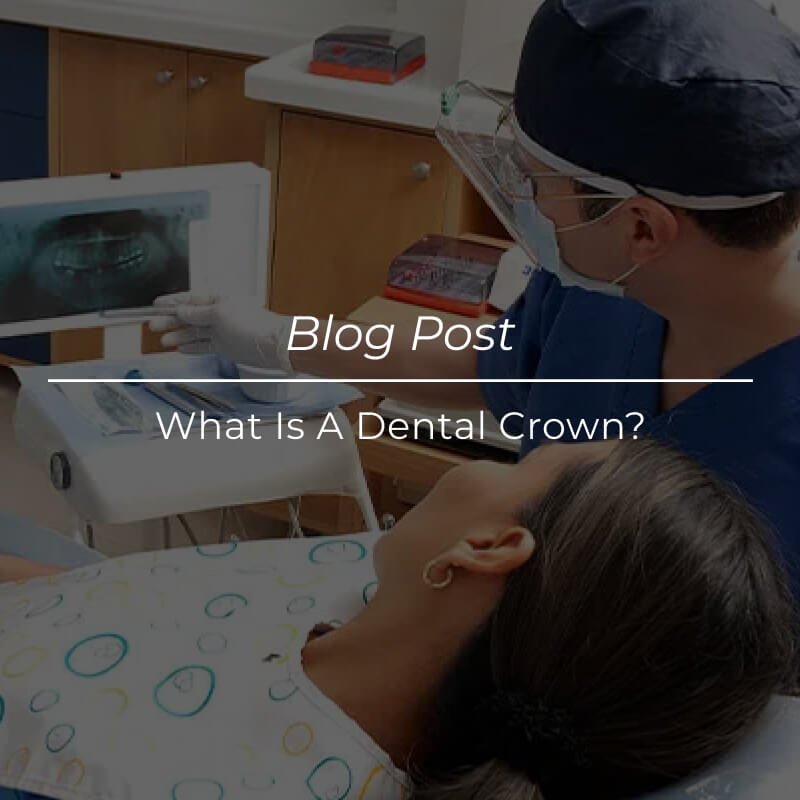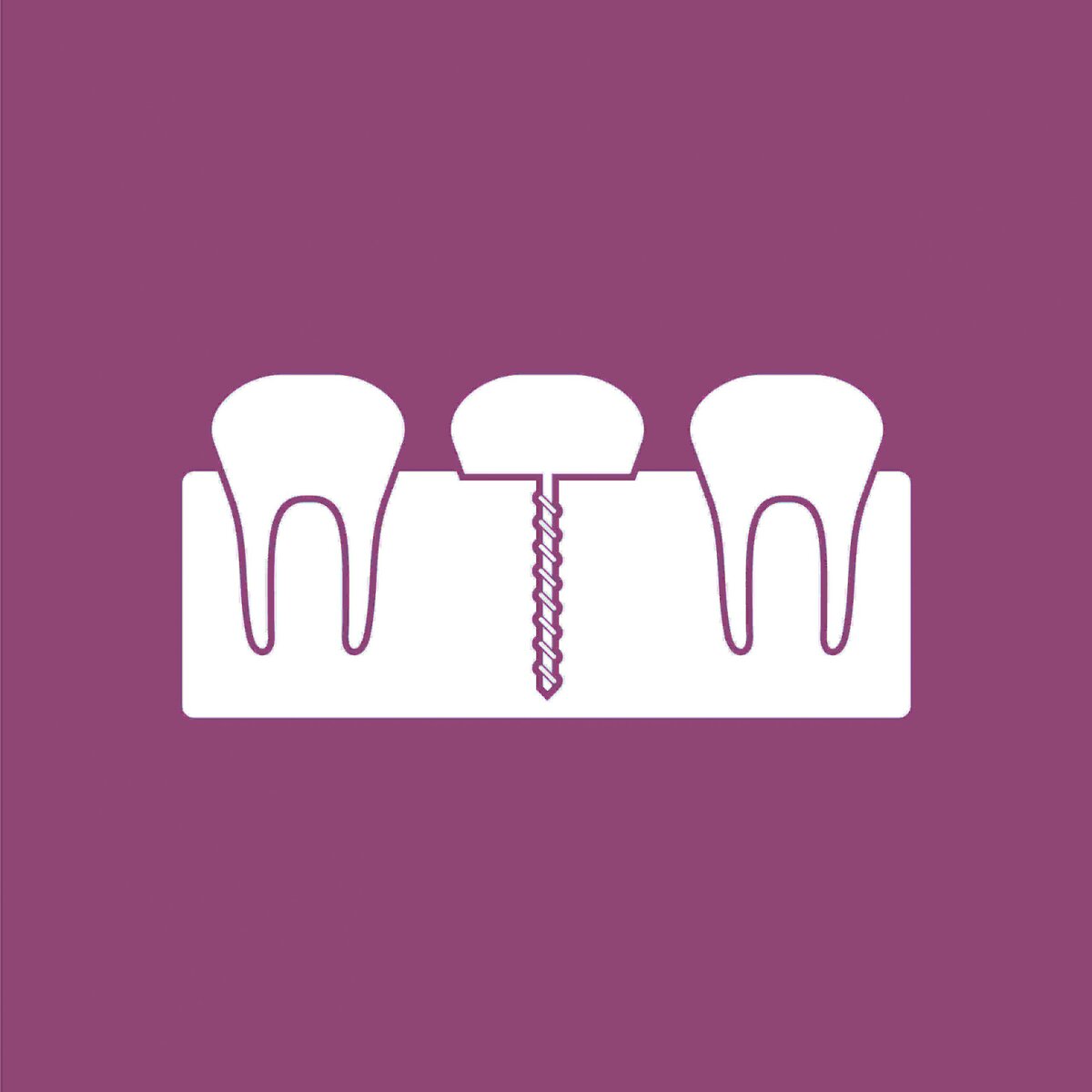-
Mon- Sat 08:00-18:00
-
Call Us Now 1300 99 1300

Dental crowns are a common restorative dental procedure that can help protect and strengthen damaged or decayed teeth. At Care Family Dental Toorak, Melbourne, we offer high-quality dental crowns that are custom-made to match the size, shape, and color of your natural teeth.
If you haven’t experienced any tooth loss or not searched for tooth replacement options, you may wonder what a dental crown is and what its uses are.
Dental crowns are tooth-shaped covers or caps used by dentists to place them on a damaged or broken tooth to protect it. A dental crown works as a protective cover for a tooth and restore the size, shape, strength, and give a better appearance to the tooth.
A dental crown is a great choice for patients who want to cover their tooth that has previously had extensive restorative treatment, such as root canal therapy or large fillings.
In a dental crown treatment procedure, dentists cement the crown on the broken or misshaped tooth and make the natural tooth invisible under the crown.
It’s an excellent choice if you want a cheaper and minimally invasive treatment to address your cracked or misshaped tooth, especially considering the cosmetic dental surgery costs for such a tooth.
Are you experiencing any of the following dental issues? If so, then dental crowns are the most recommended treatment option for you.
People with weak enamel face the risk of tooth cracks, decay, chipping, and other damages. As the outermost layer of a tooth, enamel should be strong and protect dentine, pulp cavity, and root canal from microbes and decay. The enamel of your tooth also helps you with chewing and biting.
Though you can remineralise your enamel with fluoride treatments as well as good oral hygiene, it may not necessarily improve the enamel strength to withstand cracks and decay. Therefore, choosing a dental crown for your tooth becomes the most viable option to strengthen your tooth, prevent enamel erosion further, and safeguard you from developing dental cavities.
Compared to costly procedures such as cosmetic dental surgery in Melbourne, using a dental crown for a cracked tooth is an inexpensive and minimally invasive procedure.
If your dentist put large fillings in your tooth due to a cavity, they may also advise you to cover the tooth with a dental crown. A tooth with large cavities often has low enamel density, and it may lead to the breaking or developing of cracks on the tooth. A dental crown can safeguard such teeth with from cracks.
It also helps you to improve the aesthetics of your tooth, especially if your dentist has used metallic fillings for your tooth. With a tooth-coloured dental crown, you can get the natural appearance of your tooth back. Using dental crowns is also a great choice if you have dental fractures that take at least half the width of your tooth.
People who grind their teeth may experience excessive wear on them. Due to the acidic diet or gastrointestinal acid reflux, the teeth can wear away. In some situations, the complete enamel can wear away by leaving a softer, smaller tooth portion in place.
Teeth with excessive wears can break or brittle easily, and the best option to protect such teeth is covering them with dental crowns.
A stained or discoloured tooth is a serious aesthetic issue for many. While most discolouration and stains occur due to the patient’s lifestyle, health conditions and medications can also contribute to the discolouration for teeth in some.
Though most discolouration issues can be restored to original colour using teeth whitening techniques, severely discoloured teeth may not provide great results. In such cases, patients can seek the assistance of dentists and cover their discoloured teeth with tooth-coloured dental crowns.
If you choose dental implants as a way to restore your missing tooth, your dentist will also prepare a dental crown to mount on the implant. While dental implants are made from both metals and non-metals, patients prefer non-metallic, tooth-coloured dental crowns that can exactly replace the natural tooth both aesthetically and functionally. Note that dental implants are one of the best options for replacing a missing tooth.
You can also choose dental crowns if you’ve gone through root canal treatment. The treatment leaves your tooth hallowed out and puts you at risk of developing cracks in it. A crown can restore the tooth and protect it from cracks and fractures.
A dental crown can also safeguard your remaining natural tooth from further decay or infection. After a root canal treatment, some patients may struggle with tooth sensitivity due to the remaining nerves become too sensitive to heat and cold. A dental crown can cover your tooth and prevent the issues of sensitivity.
Based on the type of material, patients can choose from metal crowns to ceramic crowns. While crowns made from the alloys of gold or platinum are a great choice for out-of-sight molars, people prefer more natural, tooth-coloured crown solutions such as ceramic crowns for frontal teeth. The metallic colour of the crowns that made from alloys makes them a less preferred choice among patients.
Therefore, most dental clinics offer porcelain or ceramic dental crowns. All-porcelain or all-ceramic dental crowns can match the natural colour of a tooth and become a great choice for patients with metal allergies.
Stainless steel crowns are also available for patients; however, these are used as temporary crowns in most cases.
Some dental clinics also offer porcelain-fused-to-metal crowns that can match the colour of other teeth in the row. However, people with these crowns may see the porcelain portion chipping off after some time. Fusing with metals is a great choice if you want more strength for your teeth.

Dentists prepare temporary crowns in their clinic mostly from stainless steel or an acrylic-based material. A dentist will place the temporary crowns on cracked teeth or implants until permanent crowns are prepared in a dental laboratory.
Permanent crowns are highly durable and can last up to 15 years if you give them proper care. They also need less maintenance, compared to temporary crowns. During the initial days of receiving a permanent crown, you may need to use a toothbrush with soft bristles to avoid the issues of sensitiveness for gums and teeth.
After a few days, you can start to brush and floss like normal. Regardless of having dental crowns, your tooth may experience decay or gum disease in the absence of proper dental hygiene and care. Your daily dental care not only ensures the longevity of your crown but the underlying tooth as well.
A tooth crown is an excellent treatment option for many dental issues, especially a replacement for cosmetic surgeries considering the invasive procedure and the cosmetic dental surgery cost.
Your restoration of the tooth with dental crowns include the following steps:
Dental crown restoration can’t be completed in a single dental visit and needs a minimum of two visits. Complex dental needs may require more visits, especially if you need dental treatments such as root canal, gum, or orthodontic treatment.
Compared to the visits required for a cosmetic dental surgery before and after, dental crowns provide quick results in minimal trips to your dentist.
Dental crowns offer many benefits. Here’s an expanded look at the advantages of dental crowns:
Dental crowns are an effective solution for restoring teeth damaged due to decay, fractures, or extensive cavities. By covering the entire tooth, crowns provide structural support and protect the remaining natural tooth structure from further deterioration. This helps in preserving the functionality of the tooth.
Teeth that have undergone treatments like root canals or have significant structural weakness can benefit from dental crowns. Crowns act as a protective shield, preventing the tooth from breaking or fracturing further. This is particularly important for maintaining oral health and avoiding potential tooth loss.
Dental crowns are made to look just like your own teeth, both in color and shape. They work wonders in making a tooth look better if it’s stained, not the right shape, or has some flaws you can see. Crowns blend seamlessly with surrounding teeth, creating a more aesthetically pleasing smile.
Dental crowns contribute to overall oral health by preserving the integrity of damaged or weakened teeth. Once your teeth get crowned, taking care of them becomes simpler. That means it’s easier to keep your mouth healthy, which lowers the chances of having dental issues down the road and keeps your smile in great shape for the long haul.
The cost of dental crowns in Melbourne, like in many other places, can vary significantly based on several factors. These factors determine how much you might pay for tooth crowns. Here’s an overview of the elements that can influence the cost of tooth crowns in Melbourne:
Once you got your permanent crown, you can care for it the same way how you care for your natural teeth. Brush twice a day, floss daily, and go for regular dental check-ups to prevent any issues with the crown.
If you struggle any of the following issues or symptoms, don’t hesitate to contact your dentist for treatment:
You may experience sensitivity to cold and heat during the initial days of the treatment. If you experience sensitivity even after a week, you should consult with your dentist and take necessary treatment.
Dental crowns offer assured results and last for a long time based on the type of material used for the construction. Most people prefer non-metallic dental crowns that come in the natural colour of their teeth.
Do you want quality, long-lasting dental crowns in Melbourne to address your cracked, discoloured, or missing teeth?
Care Family Dental Toorak provides high-quality porcelain, ceramic, and metal dental crowns based on the choices and conditions of the patients. At Care Family Dental, we evaluate your teeth and provide you with best crown solutions that can give you lasting results.
Regardless of you want cosmetic dentistry solutions or dental implants, we are committed to offering our services at highly affordable prices.
Want to discuss your requirements with us? Call us on (03) 9999 3324 to let our dentists know your requirements and book an appointment. Also, use our online appointment booking tool for a hassle-free booking.
If you’re experiencing dental issues or want to learn more about dental crowns in Melbourne, VIC, contact Care Famliy Dental Toorak today to schedule a consultation with our experienced team.








